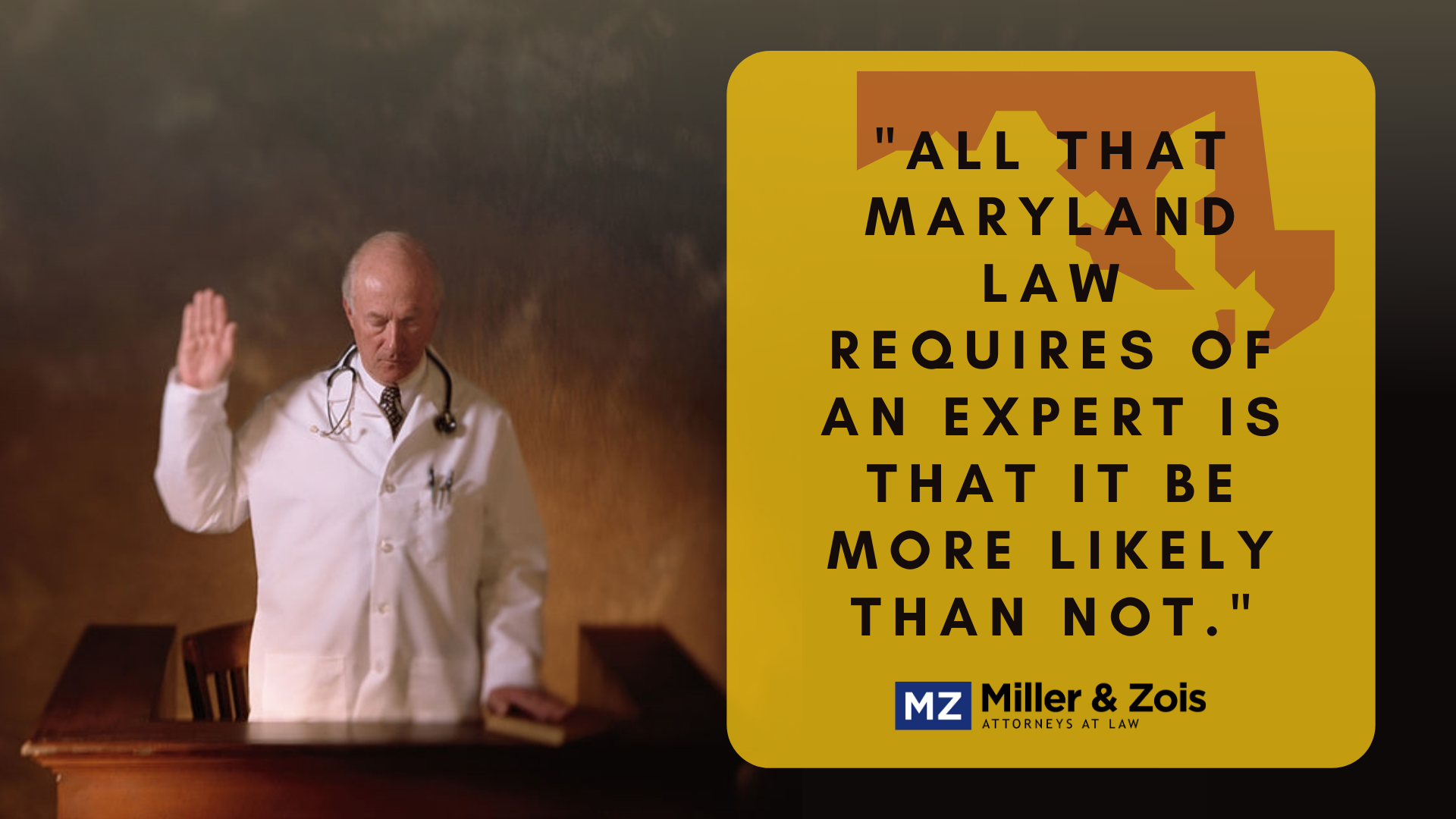In any serious personal injury case in Maryland, you need an expert to testify. Are there some cases where the injury is so obvious that a medical expert is not required? There may be. But anyone willing to take that chance should not be trying tort cases in Maryland.
Why Do We Need an Expert?
An expert has several purposes. First, with a few exceptions, you want to ask the jury to compensate you for the medical bills that you have incurred, even if they have been paid by medical insurance (because the jury is not told that insurance paid for the medical bills). Accordingly, you need a medical doctor with experience treating that injury to testify that the medical treatment that the plaintiff received was fair, reasonable, and medically necessary.
You also need an expert to testify about causation. This means a medical doctor must testify that there is a causal relationship between the medical treatment that the victim received and the incident that is the subject of the lawsuit and the claim of negligence. A doctor might also testify about both future expected medical expenses and whether the patient’s condition is expected to be permanent and what limitations are likely to result.
Even if you did not need an expert witness, you would want to bring one to trial, anyway. A medical doctor adds a gravitas to injuries even if the other side will stipulate that expert testimony is not needed in the case. Juries want to hear a doctor confirm that the patient’s claim of pain and suffering has a medical foundation.
How Sure Must the Expert Be of the Opinion?
There is confusion as to how sure an expert must be that his opinions are correct. An expert does not have to be certain or “convinced beyond a reasonable doubt” that their opinions are correct in a Maryland negligence claim. All Maryland law requires of an expert is that it be more likely than not. Many lawyers — particularly defense lawyers — get hung up on the idea of reasonable degree of medical certainty versus reasonable degree of medical probability. Under Maryland law, an opinion by a medical doctor (or any expert) need not be expressed to a reasonable degree of medical certainty to be admissible. An opinion held to a reasonable degree of medical probability is more than sufficient. Rite Aid Corp. v. Levy-Gray, 162 Md. App. 673, 711-12, 876 A.2d 115, 138 (2005).
It is important to know this when preparing experts for trial. Experts who regularly testify know the drill. But, often, we are asking treating doctors to testify for their patients at trial. Many medical experts who have had limited experience in offering legal opinions at trial assume that they must have this exaggerated level of certainty about their opinions. These doctors will say things like, “I would like to help you because I really love Ms. Smith and feel awful about what happened to her but I cannot say with 100% certainty that her permanent injuries were caused by the truck accident.” The follow-up question has to be whether the doctor believes it is more likely than not that the injuries you are discussing are causally related to the incident in the lawsuit.
More on Expert Witnesses
- How to cross-examine defense experts
- Expert designations in Maryland
- Sample expert designations in different types of tort cases
 Maryland Injury Law Center
Maryland Injury Law Center


